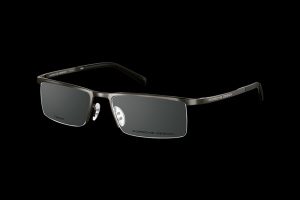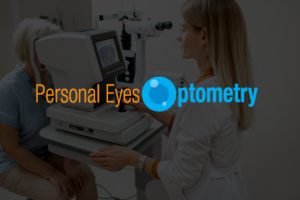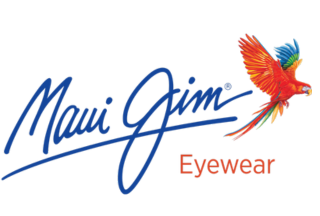Tips on Healthy Eyes

According to the Australian Government Department of Health website “The major causes of blindness and vision loss in Australia are the age-related degenerative eye diseases, such as cataract, glaucoma and age-related macular degeneration. Other conditions causing significant vision loss are diabetic retinopathy, retinitis pigmentosa, eye injuries, un-corrected or under-corrected refractive error and trachoma, which is present in some remote regions of Australia.
Certain population groups are at particular risk of experiencing avoidable vision loss, including Aboriginal and Torres Strait Islander people, older people, people with a family history of eye disease, people with diabetes, and marginalised and disadvantaged people.
There are significant health and social costs associated with vision disorders, estimated at $9.85 billion per annum.
Because our eyesight changes as we get older, many of us will need to wear glasses or contact lenses as we age. Here are some tips to help keep your vision clear.
It’s important to wear the correct prescription lenses.
Have regular eye tests
An eye test is not just good for checking whether your glasses are up to date. It’s also a vital check on the health of your eyes.
An eye test can pick up eye diseases, such as glaucoma and cataracts, as well as general health problems, including diabetes and high blood pressure.
An eye test can be bulk billed to Medicare by our Sydney city Optometrists.
Wear the right lenses
An eye test will establish whether you need a different prescription for your glasses or contact lenses.
It’s important to wear the correct prescription lenses. This will improve your quality of life and reduce the risk of accidents and eye injury.
How to keep your eyes healthy
As well as having regular eye tests and wearing the correct glasses, you can do several things to keep your eyes as healthy as possible:
- Eat well – eating a healthy, balanced diet is important for your eyes. Eating plenty of vegetables and fruit will benefit your overall health and may help protect against some conditions such as cataracts and age-related macular degeneration (AMD, see below).
- Wear sunglasses – strong sunlight can damage your eyes and may increase your risk of cataracts. Wear sunglasses or contact lenses with a built-in UV filter to protect your eyes from harmful rays.
- Quit smoking – smoking can increase your chances of developing conditions such as cataracts and AMD.
- Stay a healthy weight – being overweight increases your risk of diabetes, which can lead to sight loss.
- Use good lighting – to see well, your eyes need three times as much light when you’re 60 as they did when you were 20. Increase the daylight in your home by keeping windows clean and curtains pulled back. Make sure you have good electric lighting too, especially at the top and bottom of stairs so you can see the steps clearly. For reading or close work, use a direct light from a flexible table lamp, positioned so the light is not reflected by the page and causing glare.
- Exercise – good circulation and oxygen intake are important for our eye health. Both of these are stimulated by regular exercise.
- Sleep well – as you sleep, your eyes are continuously lubricated and irritants, such as dust or smoke, that may have accumulated during the day are cleared out.
Eye problems as you get older
As you get older, you become more likely to get certain eye problems:
- Difficulty reading – eye muscles start to weaken from the age of 45. It’s a natural ageing process of the eye that happens to us all. By the time you’re 60, you’ll probably need separate reading glasses or an addition to your prescription lenses (bifocals or multifocals).
- Floaters – these tiny specks or spots that float across your vision are normally harmless. If they persist, see an optician as they may be a sign of an underlying health condition.
- Cataracts – easily detected in an eye test, this gradual clouding of the eye’s lens is very common in over-60s. A simple operation can restore sight.
- Glaucoma – this is related to an increase in pressure in the eye that leads to damage of the optic nerve, which connects the eye to the brain. Left untreated, glaucoma leads to tunnel vision and, ultimately, blindness. However, if it’s detected early enough, these complications can usually be avoided with eye drops.
- Macular degeneration (MD) – this is the name given to a group of degenerative diseases of the retina that cause progressive, painless loss of central vision, affecting the ability to see fine detail, drive, read and recognise faces. Although there is no cure for MD, there are treatment options that can slow down its progression, depending on the stage and the type of disease (wet, dry and other forms). The earlier the disease is detected, the more vision you are likely to retain. Regular checks and eye tests including the macula are recommended to reduce the risk or slow down the progression of MD
Sources: Macula Degeneration Foundation (What is Macular Degeneration?), NHS Choices, UK (Eye health tips for over-60s), My Aged Care(Hearing, vision and oral health), Vision Care NSW (Eligibility and benefits)
A spokesperson for Personal Eyes Optometry added the following:
“We like to encourage people to learn more about eye testing via our website, and then contact us to make an appointment. It makes good sense to see your optometrist at least once per year, as eye health is very important. Starting at a young age, this is something that people need to realize.”
For more information or to schedule an appointment, visit Personal Eyes Optometry.

About Comprehensive Eye Care and Vision Solutions
About Comprehensive Eye Care and Vision Solutions

optometrist sydney cbd
Optometrist Sydney CBD What is the hype about blue light, circadian rhythms, blue light glasses, melatonin, smartphones, iPads, computers, and all LED devices? Is it good






















